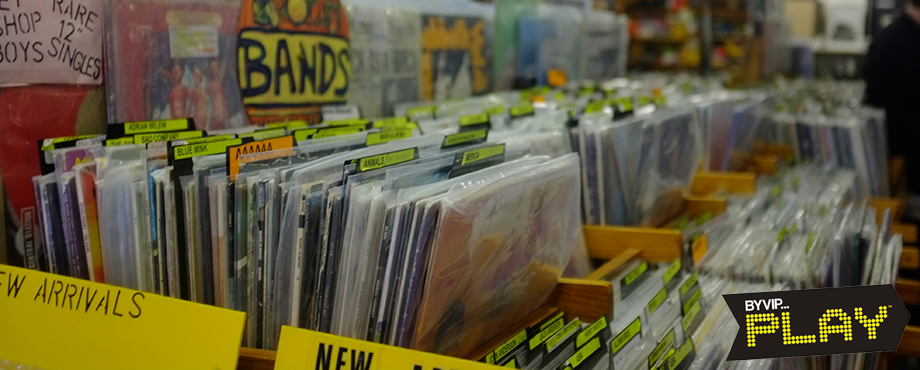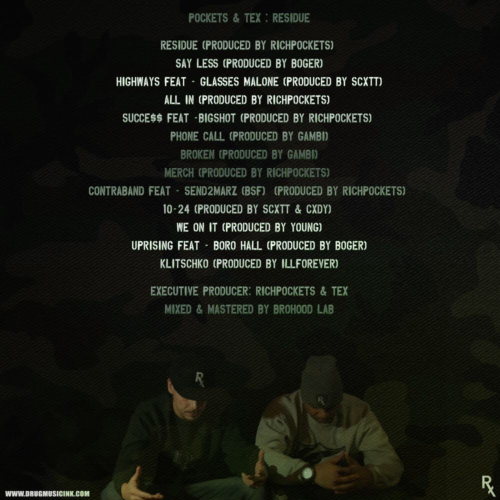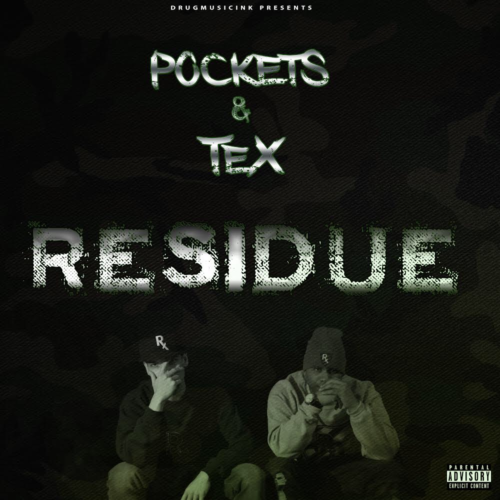Jake Shaw YourOwnMusic Ceo (@JsTheCurator)
Check out music by Jake Shaw YourOwnMusic Ceo.
https://open.spotify.com/artist/033rChIVFt7UacnlF2J2yS?si=3ZguXmwWTSmQeD3TtCCIdA
Follow on Twitter: @JsTheCurator

Check out music by Jake Shaw YourOwnMusic Ceo.
https://open.spotify.com/artist/033rChIVFt7UacnlF2J2yS?si=3ZguXmwWTSmQeD3TtCCIdA
Follow on Twitter: @JsTheCurator
Check out Deezy Cascone’s “Comin Ta Get It” now on Spotify and all other DSP’s!
https://open.spotify.com/album/0C1qKlPPXb1t62wRYvK4QO
https://twitter.com/CasconeDeezy
https://twitter.com/TrillestEnt
Brand new Invinceable video for “So Loaded”. Featuring Roman & DJ Battlecat.
https://youtu.be/-P8_egvibwo
http://www.twitter.com/oginvinceable
http://www.twitter.com/trillestent
Hard beat.
https://www.youtube.com/channel/UCUX_nPsaFH9AdFlg4MXCC_g
https://www.youtube.com/watch?v=sg-0O_h2xCQ&t=102s
Drugmusicink Presents Pockets & TeX “Residue” The Album. The latest project from the Brooklyn duo showcasing their versatility, lyricism, & melodic choruses over pulsating production. From the underground smash Say Less, to the smoothness of HighWays, to the Frankenstein creation All In, Pockets & Tex (RX) is a full bag of treats for any vibe. The project is a roller coaster continuously taking you through an adventurous tour of their vision. The track listing is a blend of sophisticated & grimey New York elements with high octane spots to rattle any trunk. Residue is Pockets & TeX carving their names in a industry that’s over saturated, by providing a sound that’s been missing from the game, & reminding the world that Brooklyn keeps on taking it…
Available on all music platforms
https://open.spotify.com/album/6WjdNlKLvLq3TRAu5GjUEj
Follow Twitter @Pocketsntex Follow Instagram @Pocketsntex
www.drugmusicink.com


Regardless of age, gender or address, we all share a love for music. Music is commonly associated with having fun and letting loose, but did you know that it can also improve your mental and physical health?
Music therapy is becoming an increasingly popular way to relieve stress and anxiety, boost happiness and increase productivity. And the best part? With Chillout Radio, it’s easy and virtually free at chillout radio website!
Music boosts levels of serotonin, dopamine and even opioids in the brain. These are known as “feel-good” chemicals associated with pleasure and reward. Higher levels of these chemicals in the brain lead to improved mood, lower levels of pain, heightened focus and energy, and greater relaxation. Music is pretty powerful stuff, and is completely drug-free!
Feeling lethargic in the office? Get your mojo back by switching on some Katy Perry; research shows that pop music with a tempo of between 50-80 BPM helps you feel calmer and more alert, and increases alpha waves in the brain (which can help you get into the much-desired “flow state”). This can help with creative thinking and making repetitive tasks less tiring.
If you can’t muster up the will to turn off Netflix and get off your couch, you might want to try listening to music. As mentioned, music releases dopamine, which is responsible for motivation and reward. Fast-paced music also wakes up the sympathetic nervous system, leading to increased heart rate and breathing – thereby giving you the energy you need to move. And of course, a happier mood can lead to feeling motivated, too.
If you’re feeling anxious or stressed, music can be an incredibly effective way to relieve these feelings and help you to relax. Studies suggest that music with a slow pulse and soothing rhythm can have the opposite effect of fast-paced music, triggering the parasympathic nervous system and leading to a slower heart rate, slower breathing, lower cortisol levels and reduced brain activity. In other words, it makes you feel really relaxed. It can be so effective that researchers even warn against listening to slow-paced music whilst driving!
In a similar vein, music with a slow tempo can help you fall asleep, too. Research has shown that listening to classical music or slow, relaxing melodies before bed improves insomnia and increases sleep quality. Aim for instrumental music (no lyrics) with 60BPM – listening to heavy metal is unlikely to help, as is anything that elicits strong emotions – positive or negative.
Studies have shown that music which creates a contented mood can relieve both temporary and chronic pain. It works in a number of ways, such as by reducing stress and anxiety, creating a distraction from the pain, boosting mood and triggering the release of opioids (the body’s natural pain-relief) in the brain. This improves pain tolerance and pain sensitivity. This has exciting implications for people with conditions like fibromyalgia, arthritis and back problems, and for people who have undergone surgery.
Besides curing your treadmill-boredom, music can also help improve physical performance. Studies have shown that listening to fast-paced music (with high beats per minute) during a workout increases your pace and endurance. It delays fatigue, relieves pain and improves your work capacity – giving you the strength and power you need to lift those heavy weights.
Studies have shown that learning and playing an instrument can ward off dementia and slow down the natural process of cognitive decline due to ageing. Playing an instrument challenges and strengthens the brain by activating regions associated with memory, attention, information processing and reasoning. While simply listening to music is associated with improved memory, studies suggest the strongest effects for those who play an instrument – so if you’ve ever wanted to learn guitar, now is the perfect time to start!
As if you needed a reason to love music more than you already do, you’ve now got seven more. Keep on top of your physical and emotional wellbeing with the help of music.
